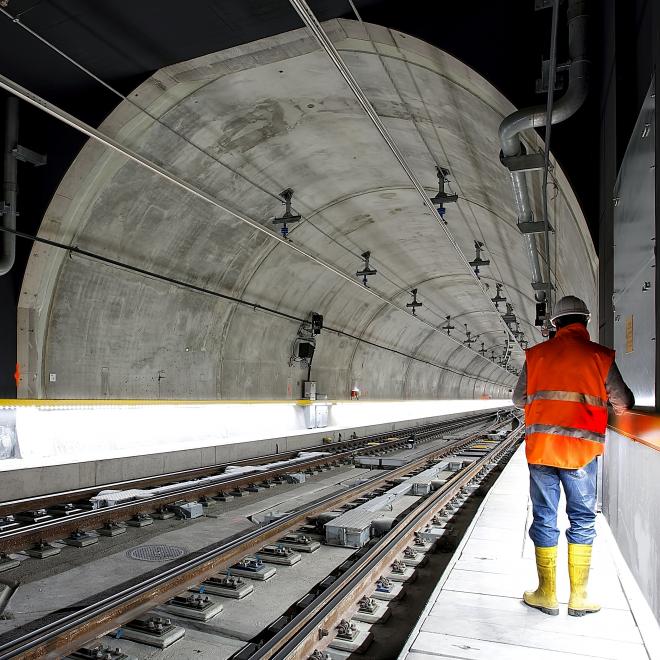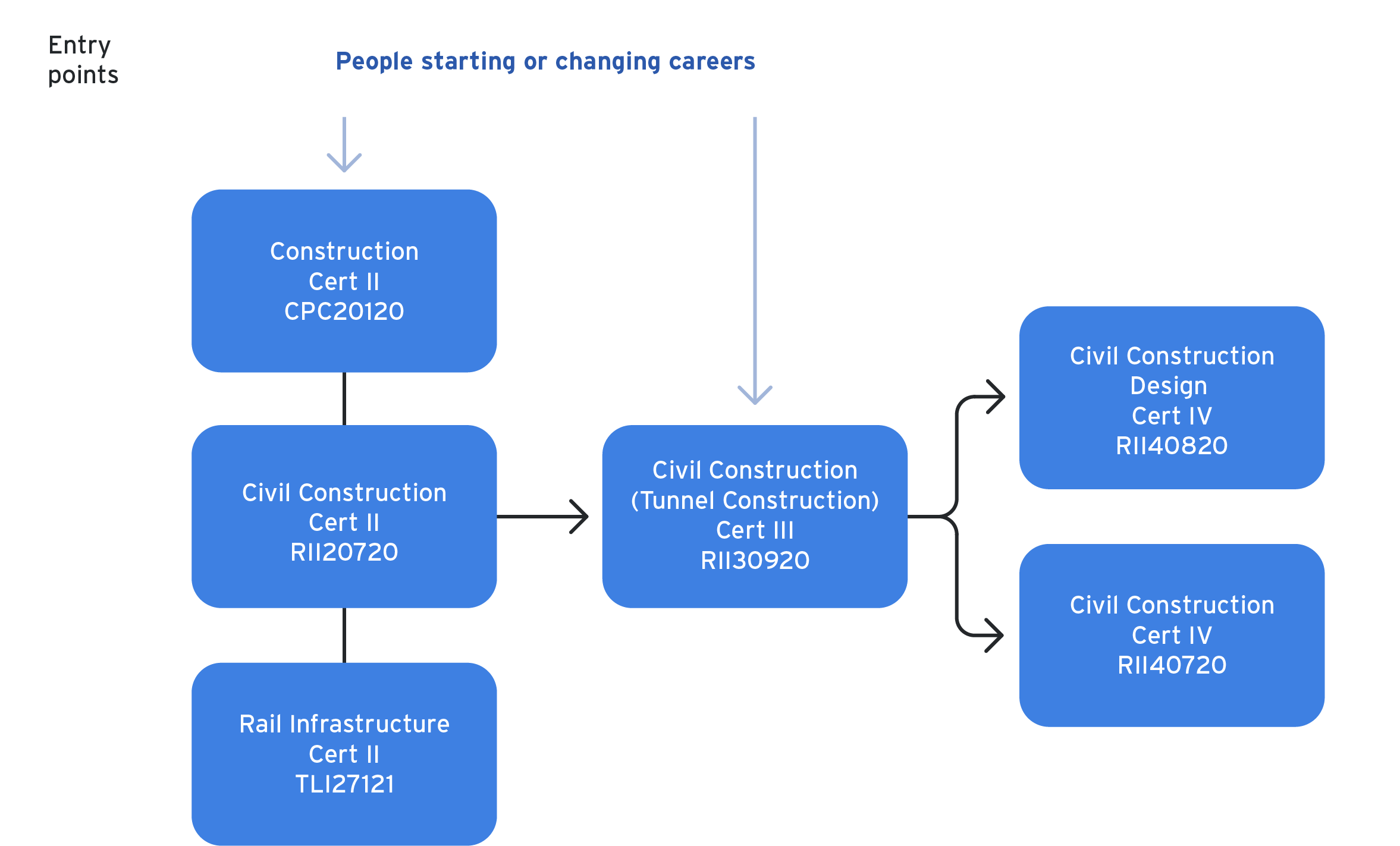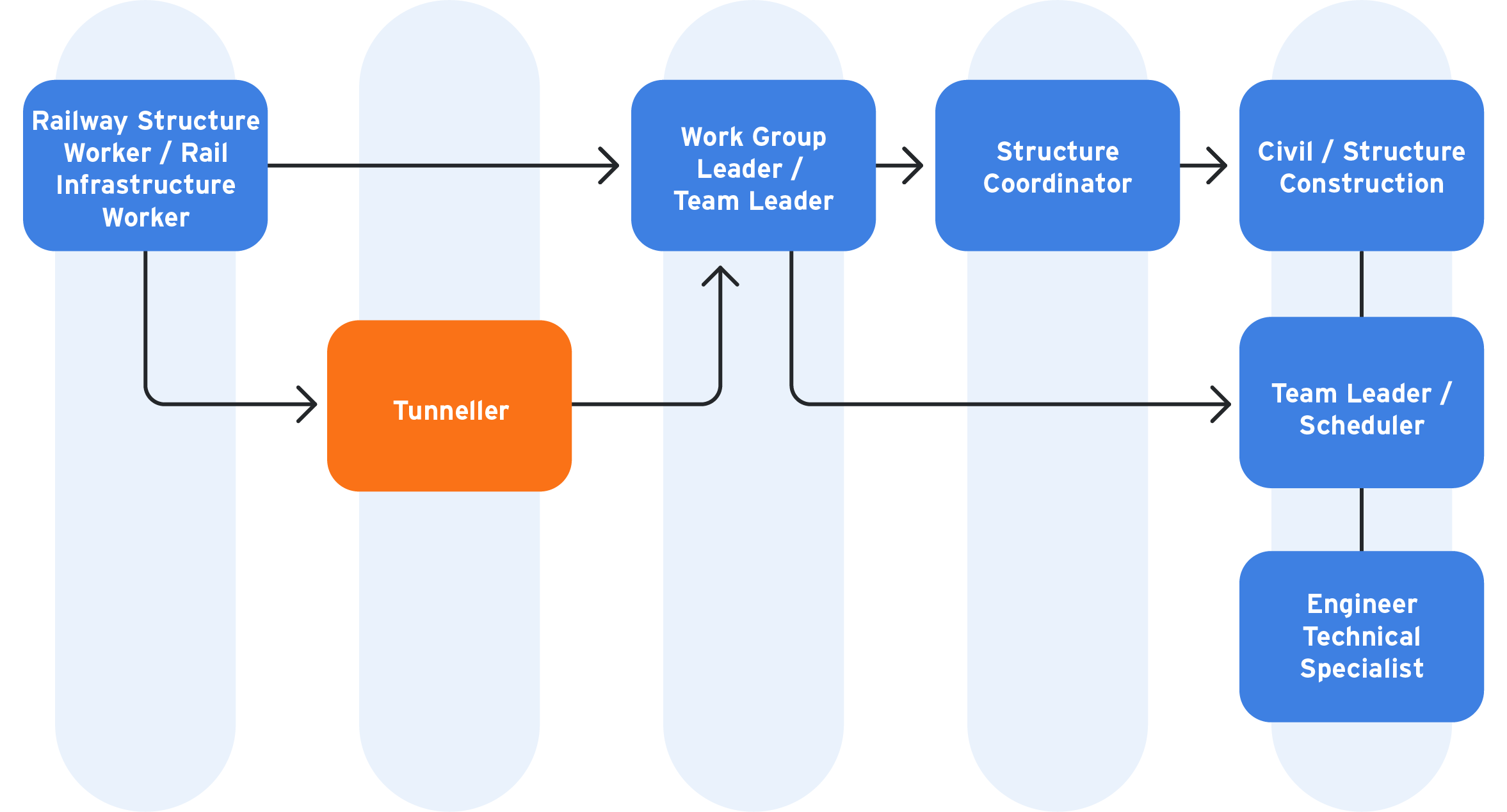
The role

Skills required to be a Tunneller
- Comfortable working in enclosed spaces
- Great team working skills
- Good communication skills
- Awareness of health and safety measures
Minimum requirements
The minimum mandatory qualification for Tunnellers is a RII30920 - Certificate III in Civil Construction (Tunnel Construction).
This is taken as part of a traineeship, which is nationally recognised. Generally the qualification is customised for each employer or project depending on the type of tunnelling being undertaken.
Optional additional qualifications: RII40720 - Certificate IV in Civil Construction. This qualification is generally taken by leading hands and site forepersons. It includes supervisory elective units relating to tunnel boring operations.
Potential training pathway

What a Tunnellers' career progression can look like
Tunnellers may look to advance their career through opportunities as supervisors or team leaders.

What do I do next?
Our findings include information from the Australian Industry Standards. For more information on Tunneller roles, take a look at their leading hand supervisor (construction) pathways.
For more information on becoming a tunneller:
- talk to your careers adviser
- get in touch with your union
- contact your local TAFE
- if you already work in rail, talk to your employer.
